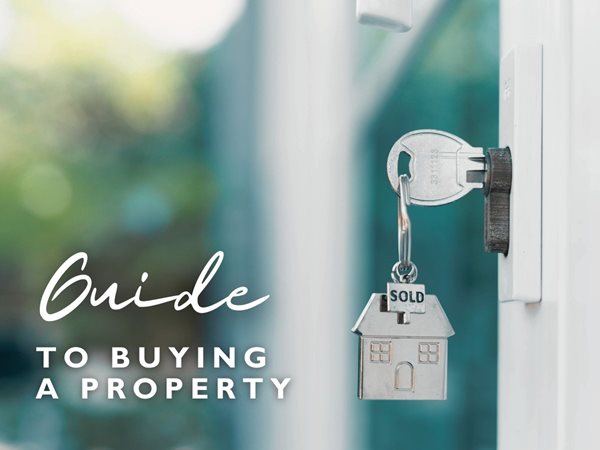
HOME LOANS, DEPOSITS AND TIMELINES
Buying a house is a dream that many Australians aspire to achieve. However, it can be an overwhelming process, especially if it's your first time. You might have a lot of questions about home loans, deposits, timelines, and prices. In this blog, we'll cover everything you need to know about buying a house in Australia.
GET PRE-APPROVED FOR A MORTGAGE
Securing pre-approval for a mortgage or home loan is an essential first step in the home buying journey. A home loan is a type of loan that enables you to purchase your property. In Australia, you can choose from a wide range of lenders, including banks, credit unions, and non-bank lenders, to find a loan that suits your financial needs.
It is important to compare the interest rates, fees, and features of different home loans to identify one that aligns with your preferences. Once you have identified a suitable lender, you will be required to provide information about your income, expenses, and credit history. This information is used to determine your borrowing capacity and assess your ability to repay the loan.
Pre-approval helps you establish a budget and gives you the confidence to make offers that align with your financial capabilities.
By obtaining pre-approval, you can streamline the home buying process and avoid the disappointment of falling in love with a property that is beyond your budget. Working with a reputable real estate professional can also help you navigate the complex home buying process and ensure that you make informed decisions.
HOW MUCH DEPOSIT DO I NEED TO BUY A HOUSE ON THE GOLD COAST?
Buying a house in Australia is a significant financial investment and requires careful planning and preparation. One of the critical considerations when purchasing a property is the deposit amount required. In Australia, the deposit required to buy a house usually varies depending on the lender and individual's circumstances. Depending on the risk to the financial institution, this will affect how much of the purchase price the bank will lend to a borrower. i.e. Teacher or nurse would be considered low risk. Sole trader – small business owner would be regarded higher risk. They might need a low doc loan - which will require a higher deposit from the purchaser.
The minimum deposit required by most lenders is generally 5% of the purchase price, but many lenders prefer a deposit of 20% or more. The deposit amount can vary based on several factors, such as the location of the property, the type of loan, and the borrower's credit score. A higher deposit reduces the lender's risk and may help secure a lower interest rate on the loan.
While a 5% deposit may seem like an achievable amount, it's essential to consider the additional costs associated with buying a house, such as stamp duty, legal fees, and inspection costs. These costs can add up quickly and can significantly impact your budget, making it challenging to afford your dream home. If you want to avoid paying LMI (Lenders Mortgage Insurance), you'll need a 20% deposit in either cash or equity (from another property).
If you're struggling to save for a deposit, some lenders offer low deposit home loan options. However, these loans often come with higher interest rates and stricter lending policies. In some cases, it may be possible to use a guarantor, such as a family member, to help secure a loan or consider alternative options such as shared ownership or rent-to-buy arrangements.
Before making any decisions, it's crucial to seek professional advice from a mortgage broker or lender. A qualified professional can assess your financial situation, provide guidance on deposit requirements, and recommend the best loan options for your circumstances.
Deposit for a contract
The deposit required when signing a contract is different to the deposit you have been saving.
The deposit you pay to the agent when your offer is accepted goes into your agents or solicitor trust account.
A licenced real estate is only allowed to accept no more than a 10% deposit as part of the Trust account laws.
On the contract a the deposit is broken into 2 parts.
1. Initial deposit (holding deposit – (smaller amount to put down while you satisfy conditions such as building and pest and finance)
2. Balance of deposit. Larger deposit is paid when the conditions are satisfied and contract is unconditional - (totalling not more that 10% or the purchase price)
TIMELINE
The timeline to buy a property in Australia can vary depending on several factors. Once you have secured pre-approval for a home loan and found a suitable property, the timeline typically involves making an offer, conducting inspections, and finalising the sale contract. This process can take a few weeks, depending on how quickly the seller responds to your offer and how long it takes to complete any necessary inspections and paperwork. It's important to be patient and stay informed throughout the process to ensure a smooth and successful purchase.
HIRE A REAL ESTATE AGENT
Hiring a real estate agent is the best way to find the right house for you. They know the market and can help you find a home that meets your needs, but it's important that you understand what they offer and the cost of their services.
Homes are listed with agents because they want them sold as quickly as possible at top dollar.
CONCLUSION
Buying a house in Australia can be a complex process, but with the right knowledge and advice, you can make informed decisions and achieve your dream of home ownership. Remember to research your options, seek professional advice, and be prepared for the costs and timelines involved.
At First National Property Solutions, we're here to help you every step of the way. CONTACT ME today to learn more about our range of properties and services.